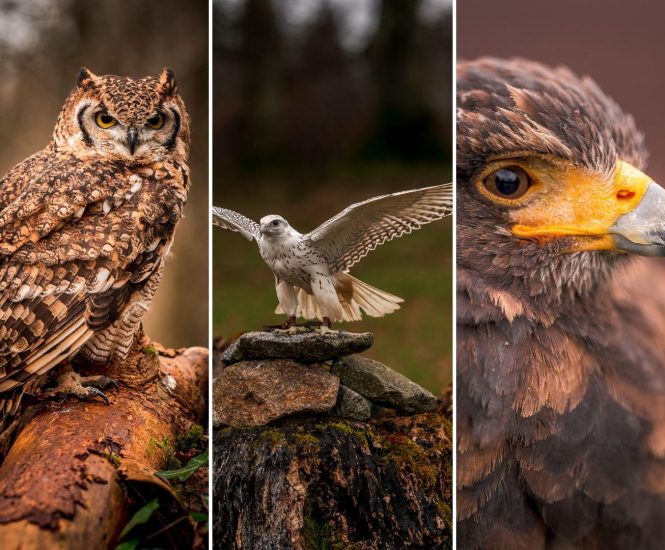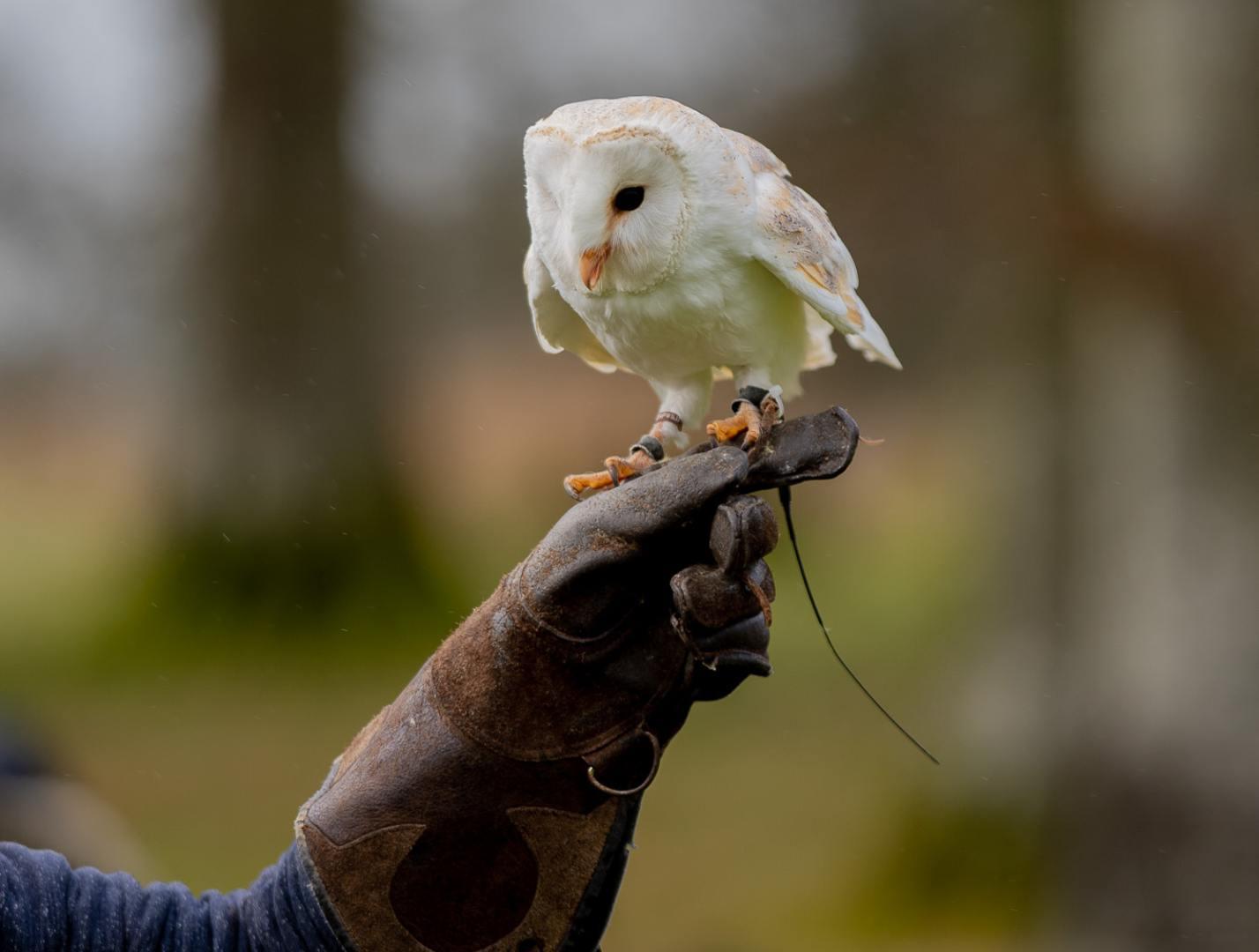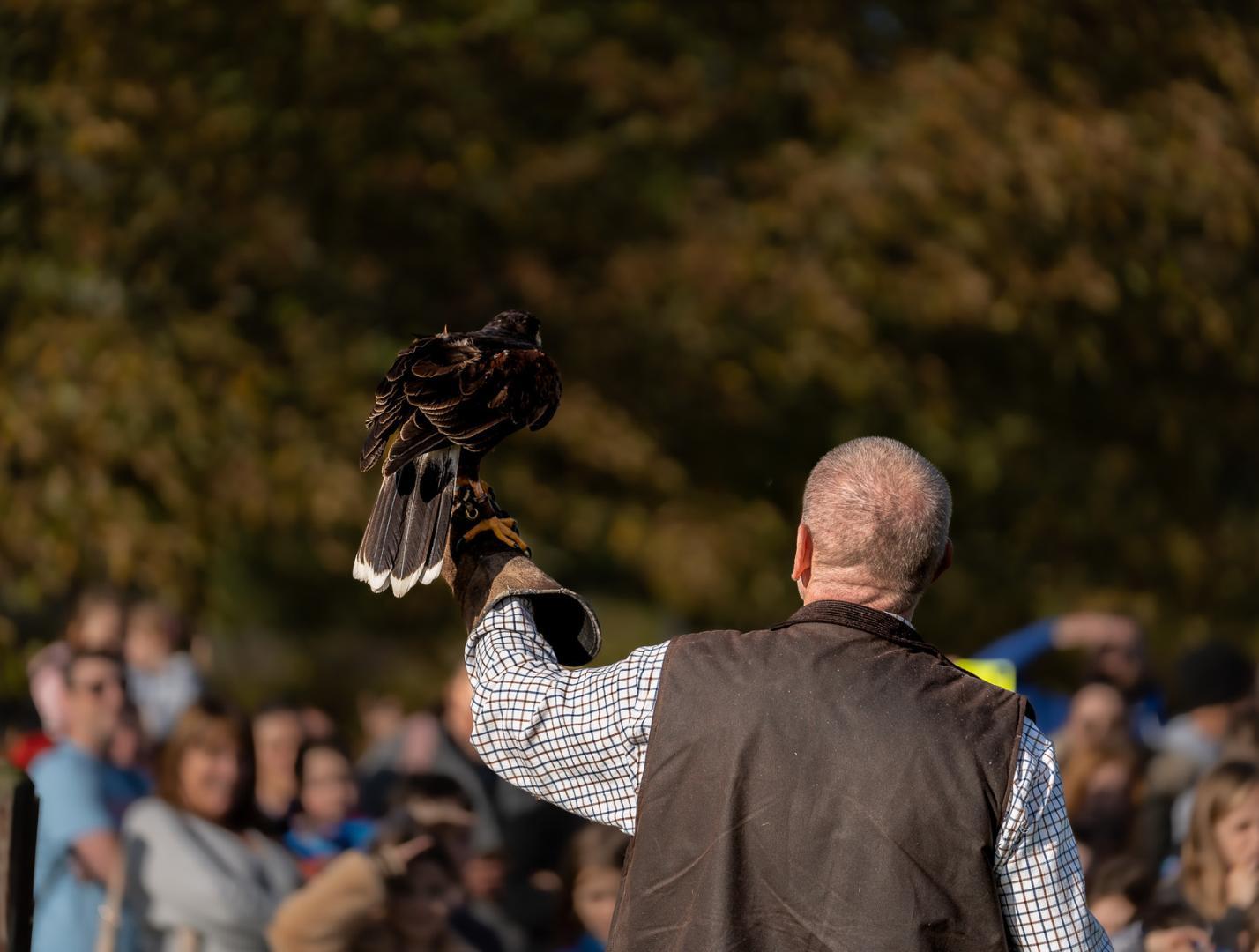While walking the grounds at Russborough, you may hear a bird calling. While you can observe ominous crows, brave little robins and cheeky magpies nearly everywhere in Ireland, there is something special about certain birds found here. This is because they aren’t the type you’d find singing outside your window or resting on a powerline.
Just down from the Artisan Courtyard is The Birds of Prey Centre, housing predatory birds from all over the world, whose natural setting can be anywhere from artic to exotic. The Centre has been with Russborough since 2016, and one of their trainers, Tom Byrne, explained that the grounds are a perfect environment for them due to its open skies and large expanses of land.
The Birds of Prey Centre is about the maintaining and appreciation of these magnificent creatures, ‘people say the falconry’, Tom added, ‘but a falconry is for hunting’, an activity that the Centre is not involved in. It is also somewhat of a misnomer, since falcons are not the only feature at the centre.

Visitors will find falcons, hawks, owls, and they themselves are able to experience the magnificence of these incredible animals up close, learning the process of handling a bird. ‘They learn how to handle owls, and how to fly hawks’, he said, but always, he stresses, under careful supervision.
This means that visitors get a hands-on experience in seeing the birds’ capabilities as hunters, the success of which in the wild is estimated to be among the best in the world. This is due to their powerful eyesight, according to Tom.
‘Have you ever seen a bird cock its head?’, Tom asks, explaining that this is the bird literally magnifying its vision by altering muscles around its eyes. Birds of prey are particularly adept at this, and as a result, ‘a falcon can see a sparrow move from 2 miles away.’
By species, Tom has observed certain traits unique to each one, ‘hawks are sprinters, meaning they tend to fly in short bursts of speed, not dissimilar to how a cheetah uses its speed to catch prey. Speed is important for hunting animals, and in fact', pointing to a rather placid looking hawk in the centre, 'it was a Peregrine Falcon, and whether you’re counting by land, sea or air, that’s the fastest animal on earth.’
In addition to their natural speed, Falcons, also enjoy flying as high as possible. ‘You can lose sight of them beyond the clouds.’
Tom also let us know that while birds fit into four categories, and that birds of a certain species tend to look identical at a glance, he has found each one is unique, a fact that time allows you know each one on the basis of how their reactions and features that aren’t noticeable at first.
‘They can recognise us individually’, Tom explains, ‘which is important for training’
As to how the birds are trained, this is a process that takes less time than one might imagine, ‘we train roughly eight a day’, but it is something that is ongoing to foster a level of trust with the birds as well as ease them around people.
‘You have to understand, when you fly a bird, it can choose to just keep going’, highlighting the animal trainer bond is key to fostering a healthy, happy bird. ‘They can go where they want, so training is all positive reinforcement.’

But is the climate of Ireland something that birds from so many locations, including far warmer climates than Ireland on its hottest day, can handle?
‘They can handle sharp changes in temperature better than we can’, cited Tom, pointing out that their feathers allow them to regulate heat. This means that the birds are able to keep themselves comfortable regardless of changeable days in Ireland.
While the sight of predatory birds can be arresting, as their piercing gazes seem confrontational, not to mention, their surprising size can be imposing, but according to Tom, in their natural setting, ‘they keep an eco-system healthy’, helping to keep animal populations at a balanced level, so ‘their presence is a sign of that’.
The Birds of Prey Centre is open daily by appointment only. Visitors can experience a hawk walk or owl experience and for those with an interest in photography they host regular one day workshops.
To find our more visit https://nationalbirdofpreycent to make a booking call the centre on 045-857755 or contact them by email at nationalbirdsofpreycentre@gmail.com to see for yourself the majestic birds cared for here at Russborough House.
